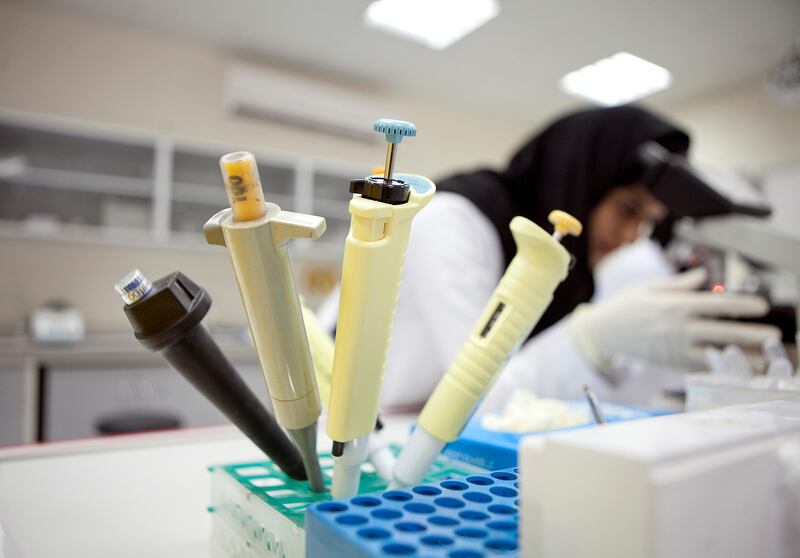A lack of role models is limiting the number of Arab women who become scientists, the World Science Forum in Jordan has heard.
Negative perceptions of women with successful careers and the challenges that many face of juggling work with domestic commitments were also highlighted during a special session at the forum in Jordan.
Tala Haddad, a healthcare engineer at the King Hussein Cancer Centre in Amman, said women lack confidence and “always underestimate” themselves. Not having women to look up to compounds this difficulty.
"The main challenge is finding role models. You might find a few women who have successfully achieved. It's always harder to find someone to look up to. Females shy away from showing their work, from encouraging others," she said while speaking at the discussion, entitled Promotion of Arab Women in Science.
While there are many female science students in the Arab world, at more senior levels their representation decreases sharply.
For example, a 2013 article in the scientific journal Nature reported that, despite women making up two-thirds of the science student cohort in the UAE, Kuwait and Qatar, just 12 per cent of researchers are female.
Welcome to the world science forum

In Jordan, reports indicate that there are more women than men studying, for example, agriculture and pharmacology, while in engineering, a subject which has traditionally had very low female representation, one in three students is a woman. At more senior levels they become less numerous, though.
A key issue facing Arab women in science is how to form professional networks, according to Dr Niveen Khashab, an associate professor in chemical science at King Abdullah University of Science and Technology in Thulwal, Saudi Arabia. She described this as her “first challenge”.
“Males are really excellent networkers. They work great together. I don't know how many females can tell me we work well together,” said Dr Khashab, a specialist in nanomaterials who studied for her bachelor's degree in Beirut before securing a PhD from the University of Florida.
She also said that women researchers faced particular problems with time management, as they were often expected to carry out the lion's share of domestic work at home on top of their professional activities.
“I have to run around a lot,” said Dr Khashab, who has previously won an award from the L’Oréal-UNESCO For Women in Science initiative.
Another factor cited was how people perceive high-achieving women. Dr Amal Amin, a polymer chemist who is an advisory board member of the Egyptian Young Academy of Science, said “strong” women could be viewed negatively in her home country.
“Inside Egypt, the society looks at you [as though] you're not a woman,” she said, adding that it was important that girls were given encouragement to challenge these stereotypes and to see themselves as strong and capable.
Despite the hurdles, the forum heard that Arab women are much better represented in science now than in the past, something that, along with mentoring schemes, could encourage yet more females to take up careers in sectors ranging from medical research to the oil industry.







